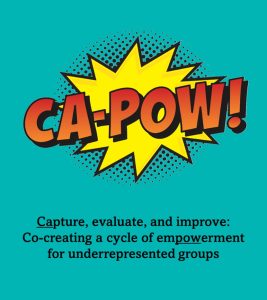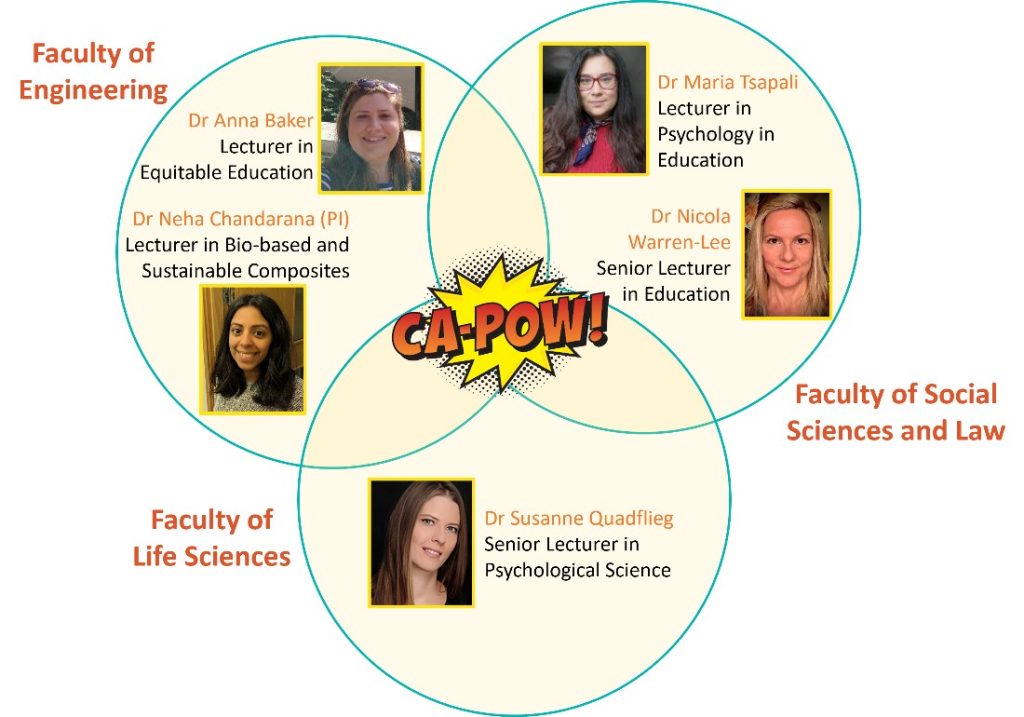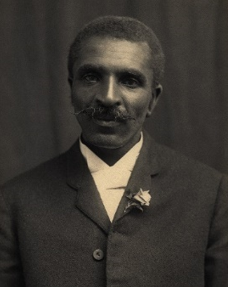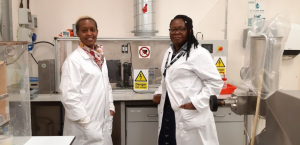Bristol Composites Institute academic, Dr Neha Chandarana, in collaboration with academics from the Faculties of Engineering, Social Sciences & Law, and Life Sciences (Fig. 1), has been awarded £100k from the Royal Academy of Engineering Diversity Impact Programme for an 18-month project. Through discussions with students and staff at the university, from engineering, the social sciences, education, and central teams responsible for student experience, student voice, and student inclusion, Neha and the team have worked to embed co-creation at the core of ca-pow!

The project, titled ‘Capture, evaluate, and improve: co-creating a cycle of empowerment for underrepresented groups’ will develop a means to capture, understand, and support intersectional students to overcome alienating educational experiences. The planned activities are split into three workstreams (WS) called ‘capture’, ‘evaluate’, and ‘improve’.
WS1 Capture: This workstream will capture quantitative and qualitative data about the journeys and experience of undergraduate engineering students. The research will be undertaken by recruited undergraduates from engineering and supported by postgraduate ‘mentors’ from the Schools of Education and Psychological Science. Co-created broad-reaching surveys will be complemented by focus groups and interviews to further understand the experiences of intersectional students.
WS2 Evaluate: On this workstream, recruited undergraduates from engineering will work closely with the Faculty of Engineering widening participation* (WP) team to evaluate , with a view to understanding how well they support different intersections of the local community. We will make use of higher education access tracker (HEAT) data and surveys to evaluate the impact of WP and outreach and deliver recommendations for future activities.
WS3 Improve: The activities in this workstream are centred around academic personal tutoring. We will implement peer tutor networks from September 2023, to connect undergraduate engineering students with peers from their programmes. In parallel, training material will be co-created by recruited undergraduates and Matt Jacobs from Wide Open Voices, to be delivered to personal tutors during the project.

Figure 1. Ca-pow! academic investigator team
Contact information:
To find out more about ca-pow! please feel free to contact us by emailing ca-pow@bristol.ac.uk
The project is led by Dr Neha Chandarana, Dr Anna Baker, Dr Susanne Quadflieg, Dr Maria Tsapali, and Dr Nicola Warren-Lee
More information
*Link to the UK government’s widening participation strategy
The RAE Diversity Impact Programme aims to inspire change in university engineering departments so that all students succeed and the unique perspectives and experiences of engineers from diverse backgrounds continue to enhance the profession. Diversity Impact Programme (raeng.org.uk)


